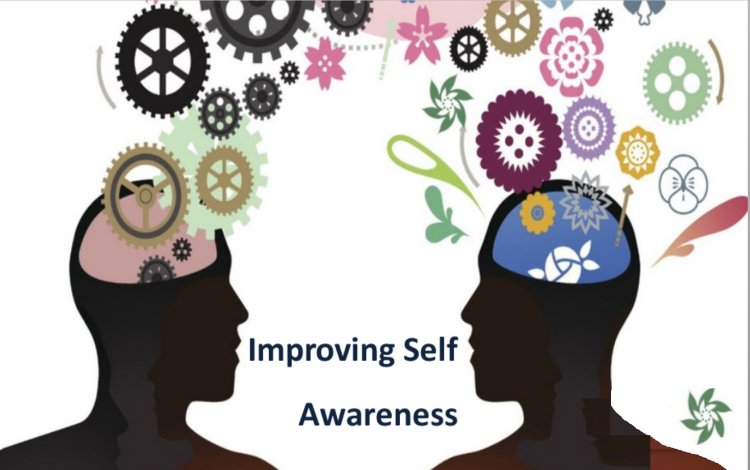Improve Your Self-Awareness
Self-awareness can help a person understand their strengths and weaknesses.

A person's strengths and shortcomings can be better understood with an increased level of self-awareness. Self-aware people may see themselves as others see them and evaluate their own performance objectively in the workplace. Self-aware people are better able to play to their strengths, accept themselves as they are, and strive for attainable goals. In this piece, we define self-awareness and discuss ways to cultivate it.
What is self-awareness?
To have self-awareness is to know oneself. In particular, self-awareness is the realization of one's own limitations. One definition of self-awareness is the capacity to evaluate one's own actions and choices. A person who is well-aware of themselves is able to admit when they've erred and correct their behavior accordingly. A self-aware person, on the other hand, is not harsh on themselves. Instead, they can take an impartial look at their actions.
How to improve self-awareness
Here are some steps you can follow to become more self-aware:
1. Take time to meditate
Concentration exercises like meditation might help you become more self-aware. Most meditators prefer a peaceful setting. Clearing your head and then asking yourself questions like "What am I trying to accomplish?" is one form of meditation. If you meditate on a regular basis, you can gain insight into your feelings and gain mental clarity.
2. Write down your goals
When you have a better idea of what you want to accomplish, write it down. When people have too much on their plates, they may feel overwhelmed. Creating a list of your obligations and long-term objectives will help you prioritize your efforts. Putting your aspirations in writing can do the same thing for you. It's not always easy to keep sight of the forest for the trees when you're working hard every day to meet your immediate obligations.
3. Get feedback at work
Even while the first two steps encourage introspection, it's also important to hear other people's perspectives on your performance. Regular feedback from coworkers can illuminate the discrepancy between how you perceive your own performance and how others perceive it. The way you connect with people is another area where comments can be helpful.
4. Talk to your friends
Because they are the ones who know you best, your friends are your friends. They may be able to shed light on your earlier actions. Your buddies can let you know if you've been too hard on yourself. Your friends can let you know if you have a tendency to put other people before yourself, even if it means neglecting your own needs. Request an honest evaluation from your friends, and be open to constructive criticism.
5. Keep a diary
You can gain a deep sense of self-awareness by keeping a diary. Maybe the choice you made didn't work out the way you had hoped. You can look back on your thoughts and feelings at the time you made the decision by maintaining a diary. Your ideas may become somewhat more clear just by keeping the diary. Explain your thoughts and feelings, and consider the reasons behind your feelings. A notebook can also assist you in determining your strengths and limitations. You reflect on your feelings and responses to situations by writing down your experience.
6. Create a life timeline
You can picture where you want your life to go and when you want it to get there by creating a timeline. The timeline can aid in giving the process of developing self-awareness some shape. You are aware of your objectives, and a timeline can assist you identify what matters most to you. The timeline can also assist you in maintaining focus on the most significant life objectives you have set for yourself.
7. Be objective
Be authentic while going through this. Although justification is common, it's important to be realistic at times. Whether in a professional or personal setting, self-awareness requires an honest evaluation of oneself and acceptance of responsibility for one's actions.
8. Accept yourself
Self-awareness entails coming to terms with one's identity and acting accordingly. Perhaps you don't consider yourself to be the most gregarious of people. That's not a flaw, but it's important to recognize about oneself. Recognize that you aren't naturally a people person and stop forcing yourself to act that way.












